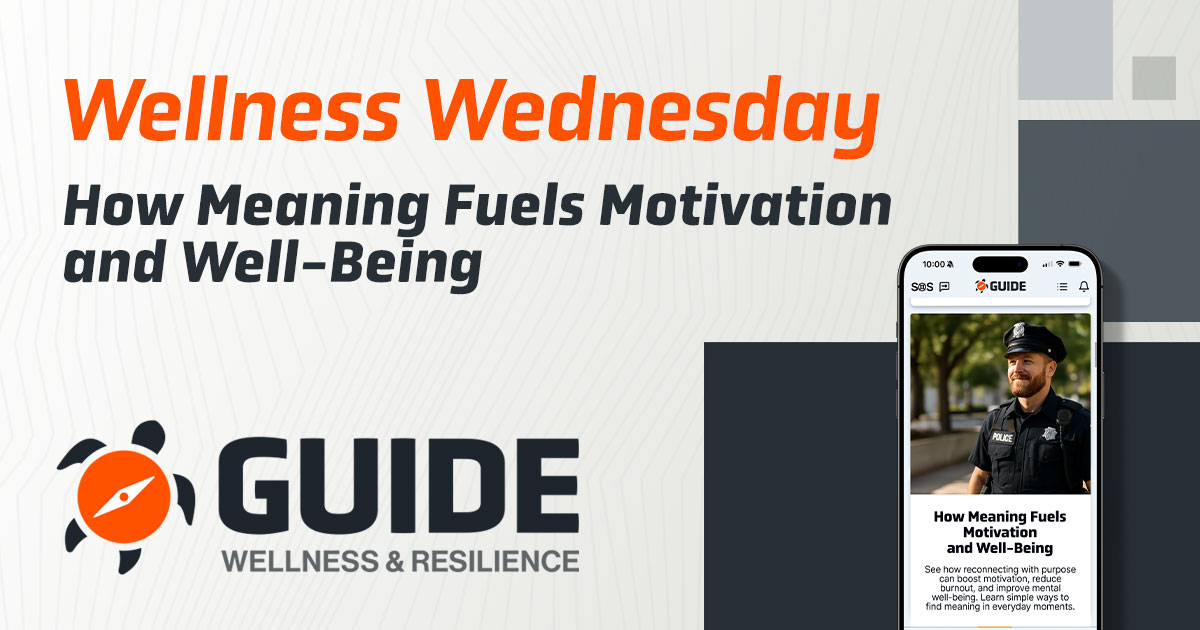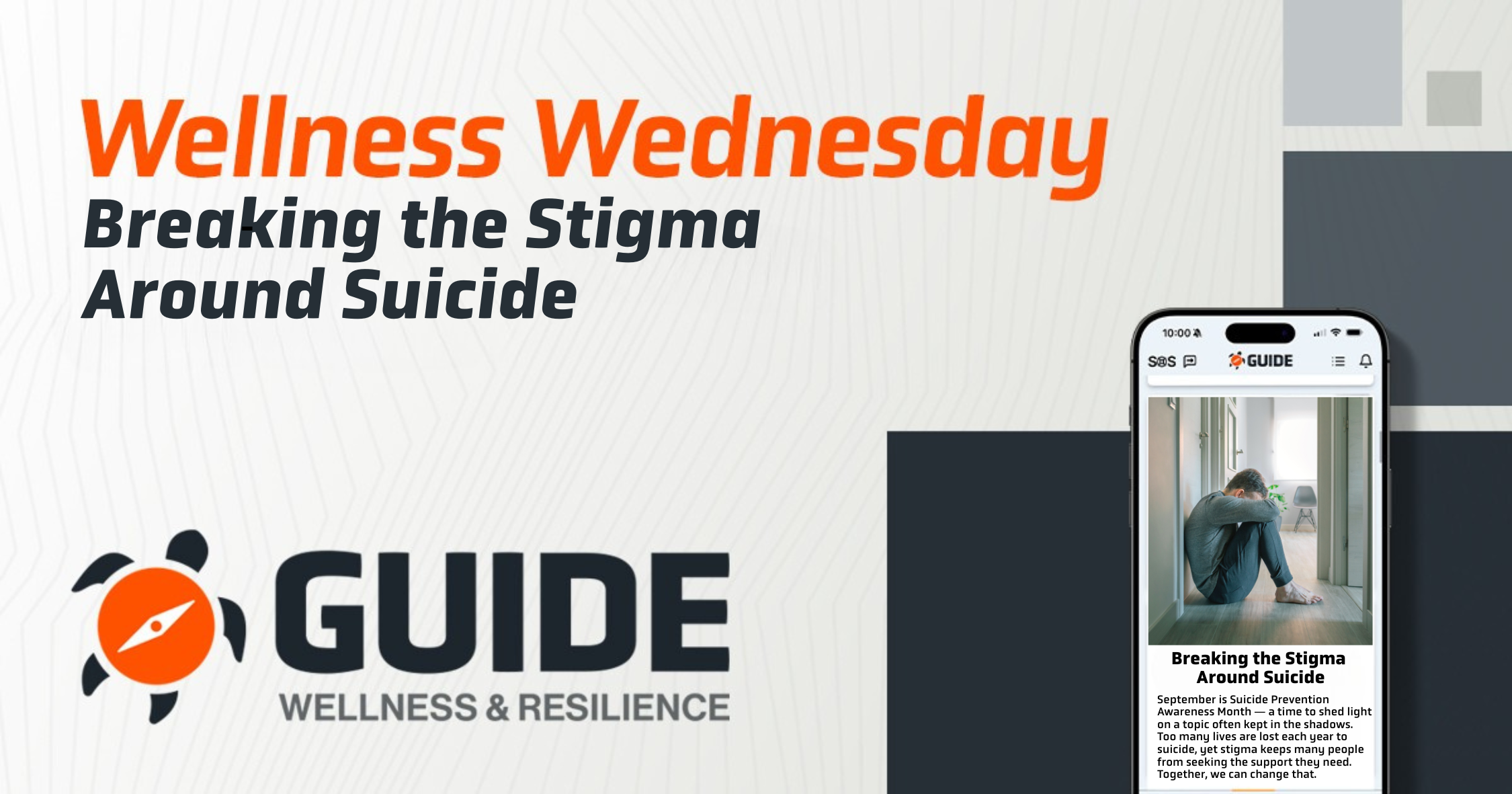When the days are long, the stress is high, and the weight of your work starts to build up—it’s easy to wonder: Why am I doing this?
That question might feel uncomfortable, but it’s actually one of the most important ones we can ask. The answer points to something essential: meaning.
Having a sense of purpose in what you do fuels motivation, strengthens resilience, and supports your overall mental well-being. When you know your “why,” it becomes easier to push through the hard moments and keep showing up—not just for others, but for yourself too.
This Wellness Wednesday, we’re exploring how meaning drives motivation and why it’s a powerful force for emotional health, especially for those who serve others.
What Is Meaning, Really?
Meaning is the deep sense that what you do matters. It’s the belief that your actions have a purpose—that they contribute to something bigger than yourself.
For some people, meaning comes from family. For others, it comes from faith, service, or personal growth. And for many first responders, it’s tied directly to the mission of helping others in their most vulnerable moments.
Even if the days feel repetitive or exhausting, meaning can anchor you. It reminds you: This work has value. I have value.
Why Meaning Matters for Motivation
We all have days where motivation is low. That’s normal. But when you connect your daily actions to a larger purpose, it creates a steady source of inner drive.
Here’s how meaning fuels motivation:
- It gives you direction – You know what you’re working toward, not just what you’re working through.
- It helps you endure tough moments – When you face burnout or challenges, your purpose helps you keep going.
- It connects your effort to impact – You’re not just checking boxes. You’re making a difference.
- It helps you feel fulfilled, not just productive – That’s the kind of motivation that lasts.
You can work hard without meaning—but you can’t thrive without it.
How Meaning Supports Mental Health and Well-Being
Research shows that people with a strong sense of purpose are:
✅ More emotionally resilient
✅ Less likely to struggle with depression and anxiety
✅ More satisfied with life
✅ Better at managing stress
✅ More likely to stay engaged in their work
And here’s something powerful: Your purpose doesn’t have to be huge or heroic to be meaningful. Small acts of service, kindness, or growth can be just as powerful.
Signs You Might Be Disconnected from Meaning
It’s easy to lose sight of your “why”—especially in high-stress jobs like law enforcement, EMS, fire service, corrections, or dispatch.
Here are some signs you might be out of alignment with your sense of meaning:
- Feeling numb, checked out, or emotionally flat
- Going through the motions but not feeling connected
- Losing sight of what made you love the job in the first place
- Feeling like your work doesn’t matter
- Lack of motivation, even on easier days
If any of this sounds familiar, don’t panic. It doesn’t mean you’re broken. It just means you need to reconnect to your why.
How to Reconnect with Meaning in Daily Life
Let’s get practical. Here are simple ways to rediscover and strengthen your sense of purpose—no matter what your shift looks like.
1. Reflect on Your “Why”
Ask yourself:
- Why did I choose this career?
- What keeps me coming back?
- What moments have reminded me that I matter?
Write your answers down. Keep them somewhere you’ll see often—on your phone, locker, dashboard, or mirror.
2. Notice Small Wins
Not every shift will be life-changing. But every day has moments that matter—you just have to look for them.
Examples:
- You helped someone feel safe
- You made someone smile
- You worked well with your team
- You did your best, even when it was hard
These small wins add up. And they all mean something.
3. Ask: “Who am I helping today?”
Service gives meaning a face. When you focus on the people your work impacts, even the hard tasks take on new value.
Think of the child you reassured, the elderly person you protected, the coworker you supported. You’re changing lives—even if you don’t always see it.
4. Set Meaningful Micro-Goals
Tie your daily tasks to something deeper. Instead of saying “I need to finish reports,” try:
➡️ “I’m telling the story clearly so someone can get justice.”
➡️ “I’m keeping this record sharp because someone’s safety depends on it.”
Find the meaning in the mission—even in the mundane.
5. Stay Connected to Your Community
People with purpose often feel connected to something bigger than themselves. That might be:
- Your team
- Your family
- Your faith
- Your values
- A cause you care about
Even when things feel tough, lean into that connection. It will remind you: You’re not doing this alone.
6. Create a Meaning Board
You’ve heard of vision boards. Try making a meaning board—a physical or digital space where you keep photos, quotes, or reminders of why you do what you do.
Update it often. Let it inspire you when your energy is low.
7. Be a Mentor or Role Model
Helping others find their purpose often strengthens your own. Share your story. Support a newer teammate. Talk about what makes the job meaningful to you.
Purpose grows when it’s passed on.
What If You’re Struggling to Find Meaning?
It’s okay. Everyone goes through seasons where things feel foggy. If you’re feeling lost or disconnected, try this:
✏️ Journal Prompt:
If I could spend my energy on what matters most to me right now, what would that look like?
Or…
When was the last time I felt proud of what I did—and what was happening in that moment?
Sometimes, the answers surprise us. Give yourself permission to reflect without judgment. You’re human.
Meaning Doesn’t Have to Be Grand—It Just Has to Be Yours
Not every day will feel inspirational. But even in the mess, the paperwork, the routine—you can still find purpose.
Your meaning might not make headlines. But it might be the quiet moment that helps someone breathe easier, sleep better, or feel seen. That’s enough.
In fact, that’s everything.
Motivation fades when we forget the why. Meaning brings it back.
As a first responder or frontline worker, you carry a lot. But you’re also driven by something powerful—the desire to serve, protect, and help others.
That’s not just a job. That’s a calling. And that calling is where your meaning lives.
So pause. Reflect. Reconnect. Then keep going—with purpose in your heart and strength in your step.
You’ve got this.




